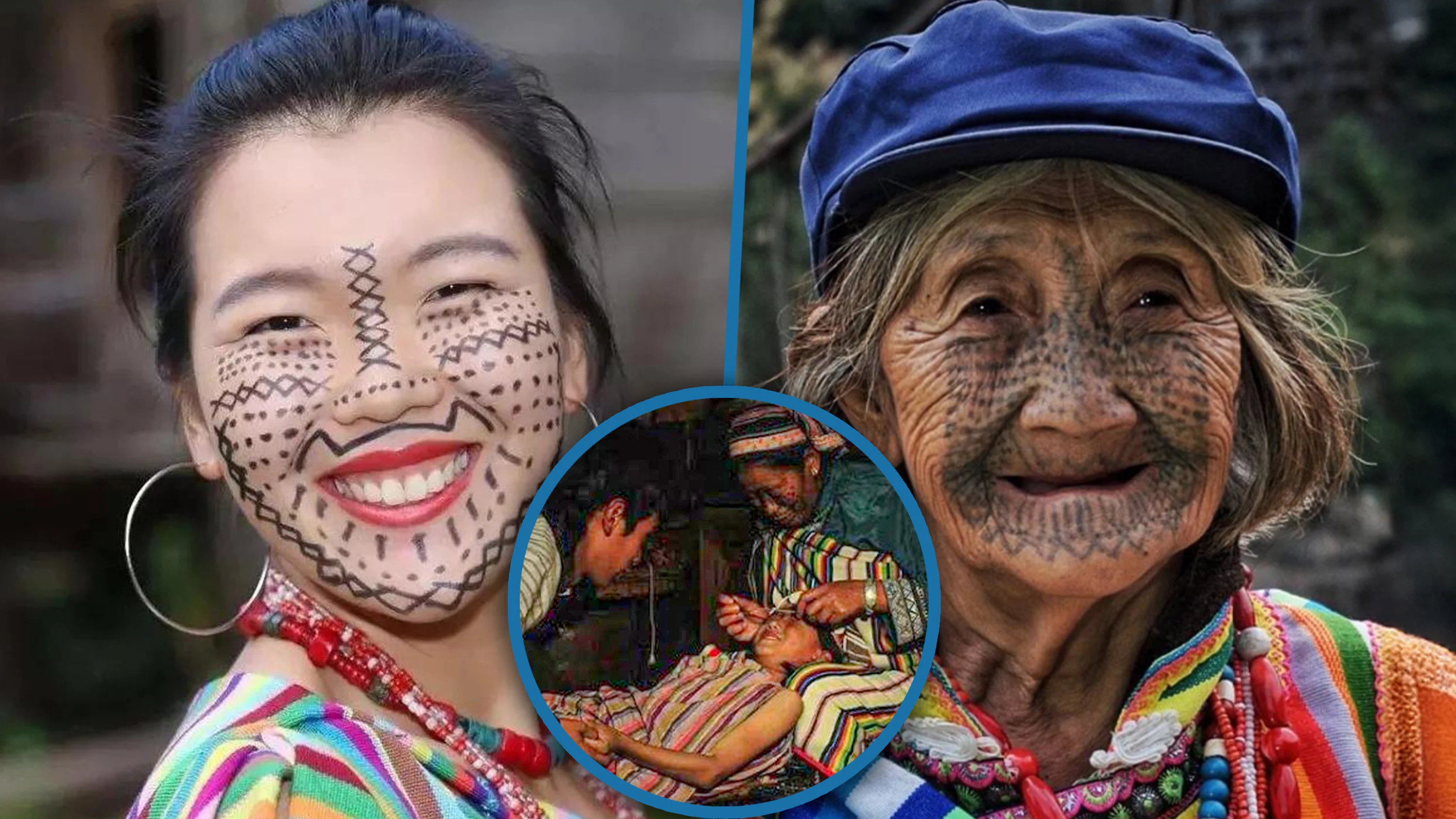Copyright scmp

Women in one of China’s smallest ethnic groups, the Dulong, are required to tattoo their faces to protect themselves from abduction. Equally striking is their love for alcohol, which they often drink instead of water, making it a central part of daily life and culture. The Dulong people, who number around 7,000, are one of China’s 56 officially recognised ethnic groups. They primarily live along a river in Gongshan county, Yunnan province, southwestern China. With a history stretching back to the Yuan dynasty (1271–1368), the Dulong are known for their bravery and skill in battle. Their relentless efforts to protect their homeland, however, led to a significant decline in their population. Face tattooing is a unique and painful custom among women and is typically done when girls reach the age of 12 or 13. Using thorn needles, ash or fern juice is pricked into their facial skin, creating cyan patterns. The process, which normally takes a full day, causes intense pain, swelling and redness for several days. The tattoos, which remain for life, are often spider, butterfly or flower designs, with variations depending on the region. Women in the upper reaches of the river have tattoos that cover their entire face, while those in the lower reaches focus on the chin area. The reason behind the practice is a matter of debate. The most common belief is that the tattoos made women appear unattractive, thus protecting them from being abducted. Another theory suggests that the tattoos mark a woman’s coming of age and only those who underwent the process could marry. By the 1950s, face tattooing began to fade due to government bans. Today, it is reported that fewer than 20 women with these tattoos remain, all of them over 75 years old. Alcohol is also deeply woven into the culture of the Dulong people. They dedicate half of their annual crop harvest to brewing it. On their wedding day, women drink with every guest, and by the end of the celebration, they usually return home tipsy with their husbands. The Dulong are also skilled at brewing alcohol in bamboo tubes, which has a low alcohol content, a fragrant aroma and a sweet taste, making it popular even among children. For them, alcohol is not just a daily drink; it is believed to refresh the body and boost strength. During festivals or when guests arrive, they drink face to face as a symbol of loyalty and friendship. They also create a unique meat-based alcohol called Xiala, which is made by stir-frying chicken, bee larvae or rat meat, then cooking it with alcohol.



